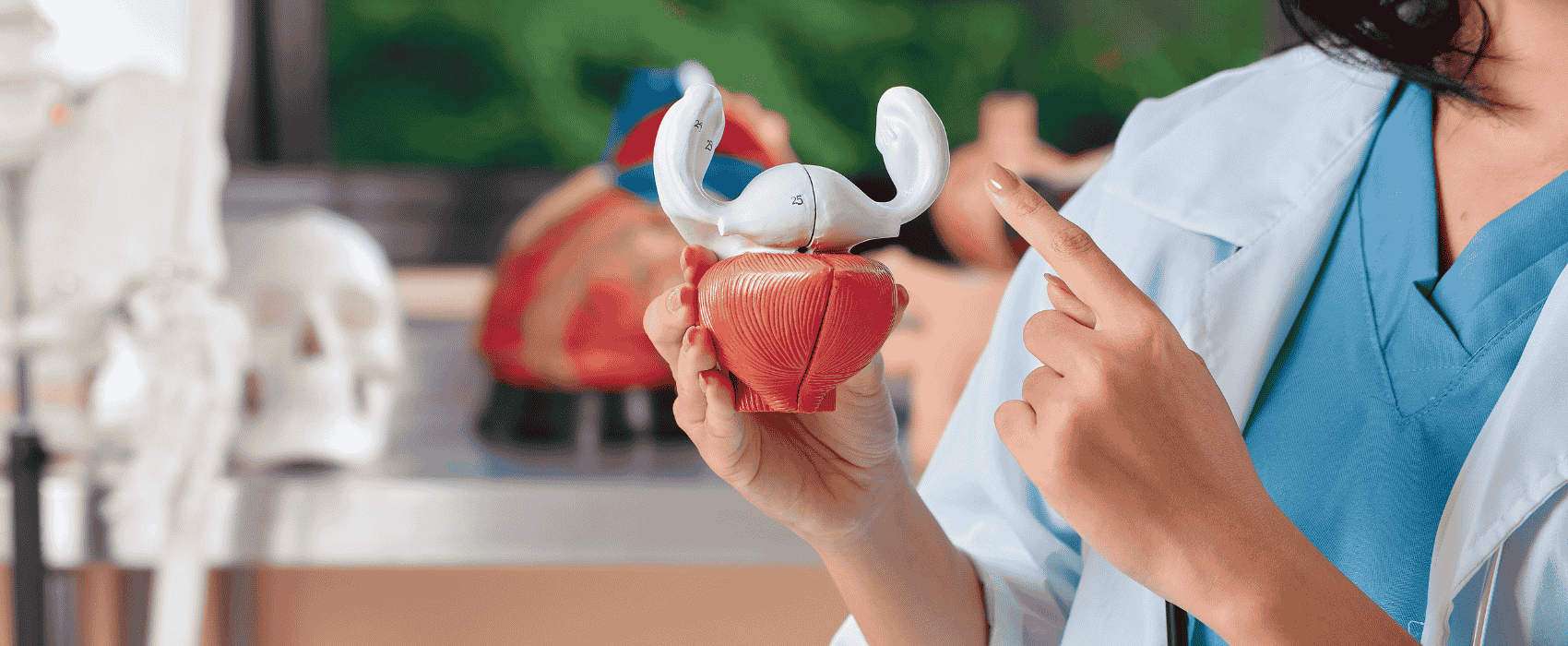
Undergoing surgery is no easy journey. From preparation to aftercare and everything in between, your body handles a great deal of stress. While urologic surgeries have made remarkable strides over the decades, you still need to rest and allow your body to fully recover. This is easy to do when you’re still in the hospital. There are doctors and nurses giving you directions and monitoring your progress and activity. The hard part is going home and continuing to take the proper measures to make a full, healthy recovery. In this article, we’ll explore how to transition from hospital to home after urologic surgery.
Urologic Surgeons and Surgeries
Urologic surgery includes any operation done relating to the genital and urinary organs in men and women of all ages.1 They are performed by urologists, who are also commonly referred to as specialty surgeons. Since the urinary system interacts with so many different areas of your body, urologists are trained in additional fields such as gynecology, endocrinology, pediatrics, and internal medicine.1
Thanks to modern advancements, most surgery that involves urology problems can be done using minimally invasive procedures, thus reducing the recovery period and associated surgical risks.
One of the main conditions that results in urologic surgery is neurogenic disorders such as spinal cord injuries, injuries to pelvic organs, chronic digestive or urinary diseases, and prostate infections or inflammations.2 Other urologic surgeries and inpatient include2:
- Kidney Surgery
- Nephrectomy
- Pyeloplasty
- Ureteral Reimiplants
- Ureterolithotomy
- Ureteral Stent Placement
- Bladder Surgery
- Pelvic Lymph Node Dissection
- Prostate Surgery
- Prostate Removal
- Testicular Surgery
- Urethra Surgery
- Surgery to the Penis
In addition to the above, there are a number of outpatient procedures that urologists perform. Some of the most common include3:
- Circumcision
- Cystoscopy
- Excision Hydrocele
- Hypospadias
- Inguinal Hernia Repair
- Meatoplasty
- Orchiopexy
- Scrotoplasty
To get a proper diagnosis and treatment plan, you will need to visit with your urologist and undergo urology tests. Depending on your diagnosis, your urologist will recommend either open surgery or laparoscopic surgery, which is a minimally invasive surgery that utilizes a small incision in your abdomen.2 Surgery isn’t always necessary, but if it is, it’s important to understand the risks involved.
Risks of Urologic Surgeries
As with all surgeries, the risks depend on the procedure being done and the overall extent of your condition. If you need to undergo open surgery, your risks are higher as anesthesia tends to take a toll on the heart and lungs. Infections are also more common amongst patients undergoing open surgery.
The primary risk of urologic surgery is incontinence post-surgery.2 To learn more about the risks associated with your urologic surgery, talk to your doctor and don’t be afraid to ask questions.
What to Expect After Surgery: Hospital Aftercare
Your aftercare will depend on the type of surgery that you undergo. Some people are able to leave the next day, while others might need to stay for up to a week. Regardless, there are a number of things that will be checked, and re-checked, before you’re discharged.
- Activity and Movement
A key to recovery is getting back on your feet. Slow, gradual movement and activity is important and will help you heal. At the hospital, expect the nurses to encourage movement fairly quickly after your surgery. It will help assess your progress and get you back to your daily routine.
- Bowel Function
Anesthesia has a substantial affect on your bowel function and organs.4 Nausea tends to be heightened for the first few hours after surgery, so you need to slowly re-acclimate to taking in fluids and liquids. Small sips of water or ice chips will help hydrate you without inducing nausea.4
Don’t be surprised if the nurse asks if you’ve been passing gas—an indication that your intestines are starting to wake up.4 Be honest, it’s nothing to be ashamed of and is important in monitoring your recovery. The last step in checking bowel function is to see whether or not you’ve had a bowel movement. This can occur the same day after surgery or take several days post-op, depending on the person.
With that being said, constipation is a common occurrence. During your hospital stay, you will likely get a stool softener and be encouraged to stay hydrated and move around.4 Listen to your doctor’s aftercare treatment plan and always follow directions or limitations set in place.
- Catheter Use
Depending on the surgery you have, you may have a urinary catheter inserted. Some patients will have this removed a day or so after their surgery and others will need to go home with a catheter to allow for proper healing.4
- Coughing and Deep Breathing
Coughing and deep breathing exercises done at the hospital will help you're your lungs with air and clear away any mucus to avoid pneumonia after your surgery.4
- Diet and Hydration
Once you’ve been able to tolerate liquids, your diet can start to progress.4 Continue to drink plenty of water to stay hydrated and start eating foods that are easy to digest. The nurses will help you with your meal choices while at the hospital.
- General Pain Control
Pain control while in the hospital is easier to manage, as you have access to nurses, doctors, and comprehensive medications. Immediately post-op, you will likely receive pain medication intravenously and switch to oral medications once you can keep liquids and food down.4 Unless absolutely required, narcotic pain medication will be limited to help your bowels restore full function more quickly.
What to Expect After Surgery: Home Aftercare
When it’s time to make the transition back home, there are a few things you’ll need to do to prepare.
- Make Sure Your Home is Prepared
The first thing that should be done is to get your home prepared. Have a friend or family member take care of this, as you will want everything ready by the time you’re discharged. Make sure that all walkways are clear and there is nothing in the way that could contribute to falling. If hospital beds are required during this transition, have spaces dedicated for it or an area cleared. All of these factors depend on the surgery, healing process, and individual capabilities, so talk to your doctor about your circumstance.
- Stock up on Supplies
If you’re going home with a catheter, make sure you have all of the necessary supplies to empty it, clean it, and change it regularly. Consider getting protective gloves, disinfecting wipes, and special accessories for showering to make your transition easier.
- Create Call Lists
Have the numbers of everyone you may need to contact available and organized in one place. Create a list of all of your doctors, pharmacists, home care companies, and anyone else you may need to call. In case of an emergency, this will streamline your communication and help you get what you need faster.
- Fill Prescriptions
Have all of your prescriptions filled and ready for you as soon as you leave the hospital. Make sure that any changes are noted by your doctor and never leave the hospital without knowing what to take, when to take it, how often, and what it does for you.
- Understand Your Patient Care
You will have a few limitations when immediately returning home from the hospital. Make sure you understand your doctor-ordered patient care and follow their advice on what you can and can’t do. If you need to use any medical equipment while recovering at home, will be going home with a catheter, or need to change bandages and administer shots, talk to your doctor about what you need to do and make sure you understand. Ask questions and keep their contact information close just in case you need clarification.
- Watch for Any Signs of Infection
Finally, keep an eye out for any signs of infection or adverse reactions to medications or treatments. If you notice anything strange, call your doctor. It’s always better to be safe, especially after just undergoing surgery.
Conclusion
Transitioning from the hospital back home after urologic surgery will require a few extra precautions, but is easier to manage than most post-op instructions. As long as you practice good health habits, follow your doctor’s post-care treatment plan, and are prepared with all of your necessary supplies, you’ll be on the path to a healthy recovery in no time. If you notice any signs or symptoms of an infection, don’t hesitate to call your doctor. When it’s time to order more supplies, or if you need any educational resources, head to Byram Healthcare’s educational support page or product selection guide. Byram is a full-service urological care supplier and offers a wide selection of high quality urological supplies that are discreetly delivered to your home. We also offer a team of knowledgeable urological customer service specialists to help answer questions and offer you personalized, confidential services.
Sources:
1https://denverurology.com/about/what-is-a-urologist
2https://www.surgeryencyclopedia.com/St-Wr/Urologic-Surgery.html
3http://www.phoenixchildrens.org/centers-programs/urology-program/common-procedures
4https://www.memorialmedical.com/services/urology-services/after-surgery/what-to-expect




